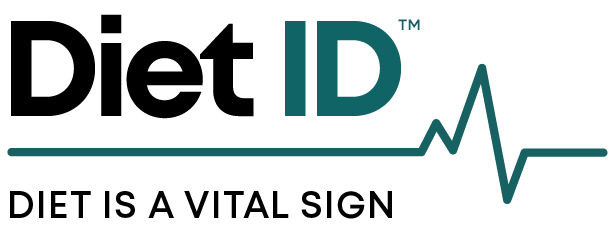Pattern Recognition Approach to Dietary Assessment Correlates Robustly with Food Intake Biomarkers, per University Study
Study from UC Davis validates a novel dietary assessment method based on pattern recognition, advancing the mission of making diet a vital sign.
DETROIT, MI, UNITED STATES, January 23, 2023
A study from the University of California, Davis shows robust correlations across diverse biomarkers of both food group and nutrient intake for a pattern-recognition approach to dietary assessment that can be completed in as little as 60 seconds. This is the latest published research supporting the utility and validity of diet quality photo navigation (US Patent # 11,328,810 B2) for accurate, comprehensive, and rapid dietary assessment. Diet quality photo navigation, offered exclusively by Diet ID, Inc., is the first fundamentally novel approach to dietary assessment introduced in decades, and does not require detailed recall, logging foods, or taking photos. Instead, the innovative method relies on pattern recognition and the selection of “best fit” dietary patterns on visual display.
To test the performance validity of the diet quality photo navigation method, the research team at UC Davis compared Diet ID to three validated dietary assessment approaches: repeated 24-hour recall, skin carotenoid scores, and plasma carotenoid concentrations.
Carotenoids, a class of protective nutrients found in plant foods, are a common marker for assessing dietary intake. This is the first study that compared skin and plasma carotenoid values – a directly observed marker of fruit and vegetable intake – with carotenoid intake data as determined by diet quality photo navigation.
After controlling for Body Mass Index (which affects the storage capacity of carotenoids in the skin and circulation), total carotenoid intake estimated by Diet ID was significantly correlated with both skin carotenoid scores and total plasma carotenoids and total carotenoids.
In comparing Diet ID to the repeated 24-hour recall, intake estimates of several nutrients correlated strongly, including cholesterol; the macronutrients protein, carbohydrates, and dietary fiber; vitamins A, C, and E; the B vitamins riboflavin, niacin, B6, and folate; and individual carotenoids like beta carotene, zeaxanthin, and lutein.
The authors write: “The findings from this study support the use of Diet ID as a rapid, non-invasive dietary assessment tool that may provide comparable estimates of nutrient consumption” against these other methods.
They conclude that “Innovative diet capture technology, such as Diet ID™, has the potential to be implemented in both clinical and community settings to increase habitual dietary monitoring, with the goal of developing awareness around food choices to initiate health-promoting behaviors across the lifespan and in racially and ethnically diverse populations.”
Diet quality photo navigation, a patented advance in dietary assessment invented by Dr. David L. Katz, was developed by him in conjunction with a team of world-leading nutrition experts. The advance has been refined and widely deployed by Diet ID, Inc, a company founded to bring the new method into use as a means of making the routine assessment of diet quality easy, fast, reliable, and inexpensive.
“We are looking to democratize access to this critical information,” said Dr. Katz, “just as the invention of the blood pressure cuff and its incorporation into the standard of practice did for blood pressure. Diet quality is the single leading predictor of all-cause mortality and chronic disease risk in the U.S., and much of the world, today. It should be measured and managed universally as a vital sign, and now it can be.”
According to Walter Willett, MD, DrPH, Professor of Epidemiology and Nutrition at the Harvard T.H. Chan School of Public Health, "The importance of assessing, and improving, diet quality for both individuals and whole populations cannot be overstated. Diet ID offers a unique capability in that space, and this study indicates it's a method that can provide valuable information, documented by comparisons with established dietary assessment methods and multiple biomarkers."
The study was funded by USDA, the Aggie Compass Basic Needs Resource Center at UC. Davis and the UC Office of the President Global Food Initiative. Diet ID software was provided by the manufacturers.
About Diet ID: A patented breakthrough method (with additional patents pending) in comprehensive, digital dietary assessment, Diet ID provides a scientifically valid approach to both understand how people eat and help them improve their diet quality, thereby improving overall health. Learn more about Diet ID at https://dietID.com.
Press release link: https://www.einpresswire.com/article/612247397/pattern-recognition-approach-to-dietary-assessment-correlates-robustly-with-food-intake-biomarkers-per-university-study

